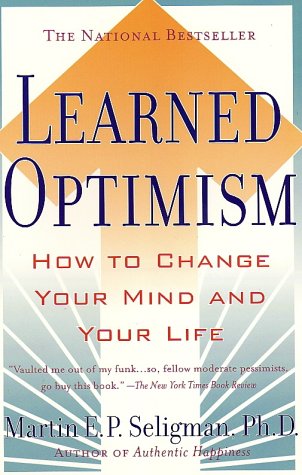Over the course of the last 23 years of Consulting and providing Psychotherapy Services to countless individuals, I can tell you that the role of Optimism is a concept that is greatly misunderstood.
 It seems that there are two extremes when it comes to Optimism: One extreme people experience is a Fear of Hope, usually due to having been burned several times previously, where feelings were severely hurt and all hope was shattered. The other extreme is Endless, (and somewhat) Baseless Hope - Hope built on nothing but hope alone (In other words, optimism without substance and hard work).
It seems that there are two extremes when it comes to Optimism: One extreme people experience is a Fear of Hope, usually due to having been burned several times previously, where feelings were severely hurt and all hope was shattered. The other extreme is Endless, (and somewhat) Baseless Hope - Hope built on nothing but hope alone (In other words, optimism without substance and hard work).
In following the research on Optimism, I found this great summary article called "Why Optimism Matters" that is helpful in realizing the impact that Optimism can have on every aspect of our lives, including business:
"More than 100 studies have been conducted to measure the impact of optimism and pessimism on people's lives.
One of the key factors is that pessimism can be very insidious, pervading all parts of people’s lives, causing them to lose heart and to give up. Research shows that people who have a pessimistic explanatory style are:
more susceptible to depression when things go wrong
more likely to underachieve
prone to passivity or helplessness when confronted with a stressful situation, such as a new job or leaving home for university
liable to under-perform at sport when faced with stress or defeat on the field of play
more likely to die from a heart attack following an initial coronary event, compared with people who have an optimistic explanatory style.
One of the reasons why optimists tend to be healthier than pessimists is that depression weakens certain hormones in the brain, sparking off a chain reaction that suppresses the immune system.
Optimists also pay more attention than pessimists to information that will help them reduce health risks. A study by Dr Lisa Aspinwall, associate professor at the University of Utah, found that when subjects were given information about cancer and serious health issues, optimists spent more time than pessimists reading the severe risk material and they remembered more of it. It is because they are optimistic that they are prepared to bite the bullet and spend time attending to major health risks.
There is a simple explanation for the link between our explanatory style and the things that happen in our lives. Reivich points out that if you are a 50 year old man who smokes, drinks a lot of alcohol, eats a lot of red meat and has had a first coronary episode, then his explanatory style will have a big impact on the outcome. Pessimists will tend to behave passive in the face of this bad news, rather than spurred into action to change their lifestyle and improve their health.
'The doctor says "you need to quit smoking, quit drinking and change your diet". As a pessimist, you'll most likely say to yourself something like "it’s in my genes, my father died of a heart attack, his father died of a heart attack, I’m just destined for this". And if that’s your belief then that’s going to dictate your behavior, and you’re going to be less likely to follow doctor’s orders. So there’s nothing magical about the pathway through which explanatory style leads to real world outcome, explanatory style drives behaviour – and behaviour is what leads to outcomes.'
'These are people,' says Aspinwall, 'who aren’t sitting around wishing things were different. They believe in a better outcome, and that whatever measures they take will help them to heal.'
Research led by Dr Mika Kivimaki in Finland concluded that optimism may reduce the risk of health problems and actually help a person recover after experiencing a serious life-changing event, such as death of a spouse or child. Following a major life crisis, pessimists tend to take more time off work than optimists.
'Pessimists frequently distance themselves from emotional events and this coping strategy may be less effective than using active problem-focused coping immediately after an uncontrollable severe event such as death of a family member', said Kivimaki.
Pessimistic people face the real risk of giving up in the face of adversity, of passively accepting that they were born to draw the short straw in life. But we don’t need to live like this. When bad things happen we should take action by striving to find the explanations and thought patterns that give us hope, instead of the 'This happpens to me' 'all the time', 'no matter what'.
For some people it could mean the difference between life and death."
On Monday, I'll share some examples and analogies within the sports arena that you can relate to your team and business competition practices.











